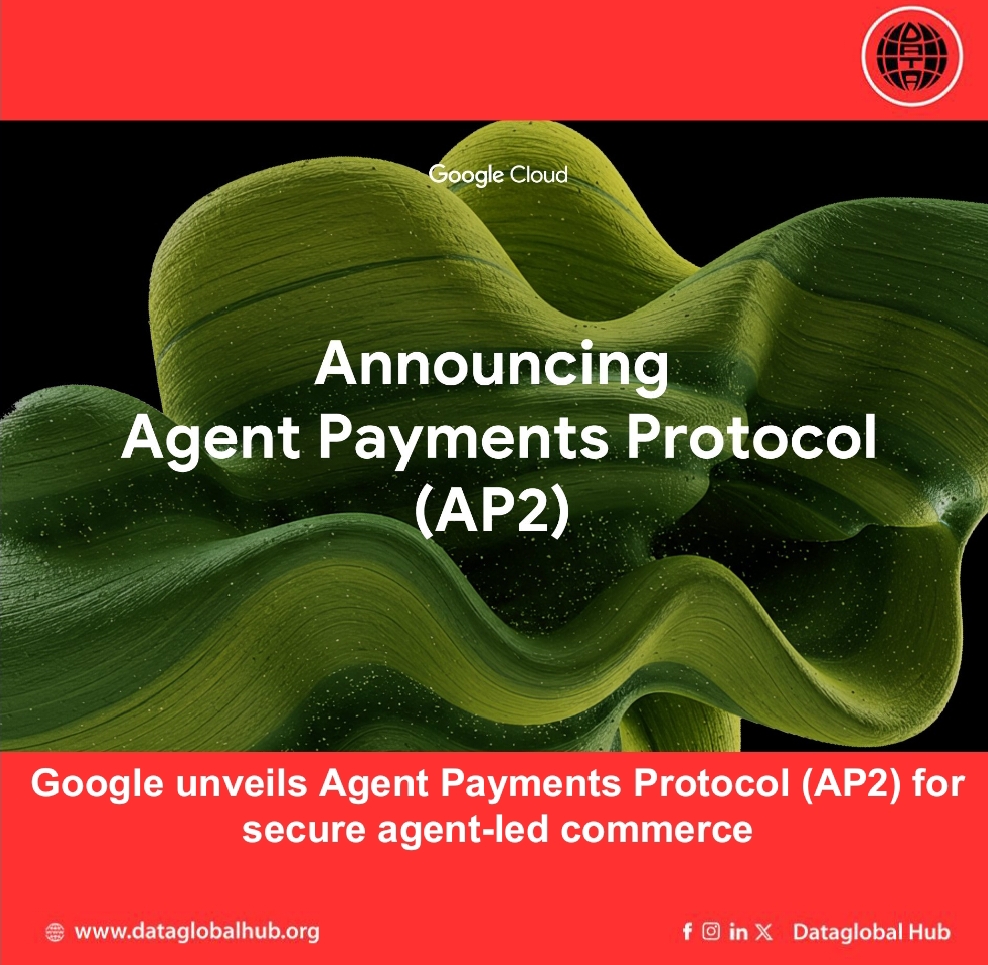
Google unveils Agent Payments Protocol (AP2) for secure agent-led commerce
Translate this article
Google introduced the Agent Payments Protocol (AP2), an open, payment-agnostic framework that lets AI agents securely initiate and complete transactions across platforms. Built to work alongside the Agent2Agent (A2A) protocol and Model Context Protocol (MCP), AP2 defines how authorization, authenticity, and accountability are handled when an agent triggers a purchase.
Why this matters
AI agents can now act on a user’s behalf, but most payment rails assume a human is pressing “buy.” AP2 addresses three critical gaps:
The protocol is open and payment-agnostic, supporting cards, bank transfers, and stablecoins, so payments providers and merchants can interoperate without fragmenting the ecosystem.
How AP2 works: mandates + verifiable credentials
AP2 establishes trust with Mandates tamper-proof, cryptographically signed digital contracts backed by verifiable credentials (VCs):
This chain (intent → cart → payment) links the chosen payment method to verified cart contents and produces a clear audit trail.
Example experiences AP2 enables
Industry collaboration
Google says 60+ organizations are contributing to AP2’s direction, including payments networks, processors, platforms, and technology companies (e.g., Adyen, American Express, Ant International, Coinbase, Etsy, Forter, Intuit, JCB, Mastercard, PayPal, Revolut, Salesforce, ServiceNow, UnionPay International, Worldpay, and others). The broader ecosystem also includes companies across commerce, identity, developer tooling, and data streaming that expressed support for AP2’s goals of security, interoperability, and trust.
Google invites networks, issuers, merchants, technology providers, and end users to collaborate on AP2 in an open process, including through standards bodies. Many A2A agent partners plan to make AP2-enabled, transactable experiences available via an AI Agent Marketplace. Potential enterprise uses include agent-driven B2B procurement and license scaling. A public GitHub repository hosts the technical specification, documentation, and reference implementations, with regular updates planned.
About the Author

Liang Wei
Liang Wei is our AI correspondent from China
Recent Articles
Subscribe to Newsletter
Enter your email address to register to our newsletter subscription!